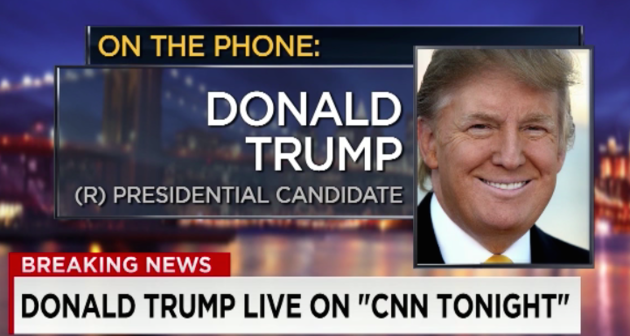Hillary Clinton’s Unconvincing Response To A Tough Question
Hillary Clinton has a big problem with voters: she’s broadly viewed as dishonest.
An ABC News/Washington Post poll taken of Democrats late last month showed that she trailed Bernie Sanders by double digits on the question of honesty. An exit poll of the New Hampshire primary contained even more concerning news for the Clinton campaign. According to Chris Cillizza of The Washington Post:
“More than one in three (34 percent) of all New Hampshire Democratic primary voters said that honesty was the most important trait in their decision on which candidate to support. Of that bloc, Sanders won 92 percent of their votes as compared to just 6 percent for Clinton.”
It’s in that context that Secretary Clinton faced a line of questioning about her honesty late last week from CBS News anchor Scott Pelley.
Here’s the transcript of that exchange, as captured by The Washington Post:
PELLEY: You know, in ’76, Jimmy Carter famously said, “I will not lie to you.”
CLINTON: Well, I have to tell you I have tried in every way I know how literally from my years as a young lawyer all the way through my time as secretary of state to level with the American people.
PELLEY: You talk about leveling with the American people. Have you always told the truth?
CLINTON: I’ve always tried to. Always. Always.
PELLEY: Some people are gonna call that wiggle room that you just gave yourself.
CLINTON: Well, no, I’ve always tried —
PELLEY: I mean, Jimmy Carter said, “I will never lie to you.”
CLINTON: Well, but, you know, you’re asking me to say, “Have I ever?” I don’t believe I ever have. I don’t believe I ever have. I don’t believe I ever will. I’m gonna do the best I can to level with the American people.
On the surface, it looked like Clinton had one of three imperfect options, as reviewed below.
1. Admit That She’s Lied At Times
This would almost certainly be the more credible answer. After all, who among us has “always” told the truth? But if she admitted that explicitly, her damning sound bite would be used by opponents for months to come, on issues ranging from her use of a private email server to her handling of the attack at a U.S. consulate in Benghazi.
2. Insist That She’s Always Told The Truth
Few people, other than the most unusually unskeptical observers, would believe this answer. I suspect that even her most ardent supporters would accept the proposition that people—including people in political life—sometimes lie. Mr. Cillizza of The Washington Post argued for this approach—although, as you’ll read shortly, I’m not sure I agree with his conclusion.
3. Answer As She Did
Ms. Clinton’s actual response contained wiggle room that she’s always “tried’ to tell the truth. Her reply, while imperfect, conformed to advice I offered about answering “guarantee” questions in The Media Training Bible:
There’s one question that almost always trips up our trainees: the question that demands a guarantee. Like the “yes or no” question, a question demanding a guarantee is insidious, because everyone watching knows you can’t guarantee anything in life with certainty. But if you answer by saying something flip such as, “There are no guarantees in life,” or, “No, we can’t guarantee that,” the resulting quote will be dreadful.
The best way to answer “guarantee” questions is to talk about what you can guarantee. You usually can’t guarantee a specific result, but you can guarantee that you are committed to something specific—an effort, a policy, or an idea.
But she might have also had a fourth option to consider.
4. Call a Foul On The Question
Mr. Pelley’s line of questioning struck me as overly broad and sensationalistic. Journalists love these absolute questions, because as the three options above suggest, they usually lead to flawed responses that create “news.” But I wonder whether the questions—as well as Pelley’s somewhat smug tone—were ripe to be pushed back upon?
Perhaps she could have answered along these lines:
“Come on, Scott, that’s a ‘gotcha’ question. If I’ve made a specific statement you’d like to question me about, I’d be happy to discuss it with you.”
Pelley would have likely rebutted her point, arguing his question goes directly to her character and a core voter concern. But Clinton could have confidently maintained her position:
“Scott, if you’re asking me whether I believe honestly is an important trait in a leader, you bet I do. And my track record will show that. But rather than answer a generalized question from you, let’s get into specifics. If you have a specific concern about something I’ve said that you dispute, let’s talk about that.”
Why do I think that’s an option worth considering? Because regardless of which of the first three answers she gave, her critics would still pounce. And precisely because there is no perfect answer, it comes down to what her available voter pool thinks of her response.
Given that this election cycle has proven that: journalists are as unpopular as ever; attacks by candidates against what they and their supporters view as unfair coverage often work; and candidates are rewarded for muscular responses, I’m thinking that going on offense would have played better than responding from a defensive position.
What do you think?
[poll id=”53″]





Combine 3 and 4 so you answer the question- take “she didn’t answer the Q” off the table – and bridge right to “but Scott, you’re a newscaster, you know from having to answer that question on behalf of your network that it’s a “gotcha.” And return immediately to “I’ve always tried to level with people and I always will.”
I would go with a combination of 1 and 4. “Scott, I’m human but that’s one of those “always or never” questions that are only asked to make news without adding any value to the conversation. The conversation we should be having is about…”
Mike —
I like yours better than mine. Thank you for adding your experience to the blog!
Brad
I would go with a combination of 2 and 4. Something like, “I have never lied to the American people and I never will. Have I ever lied? Well, I did lie to my dentist once about flossing my teeth every day!” If confronted with an apparent “lie”, like Bengazi or her email server; then say something like, “I have always told the truth! In retrospect some of what I said now appears to be incorrect, but I told the truth and I will continue to tell the truth!”